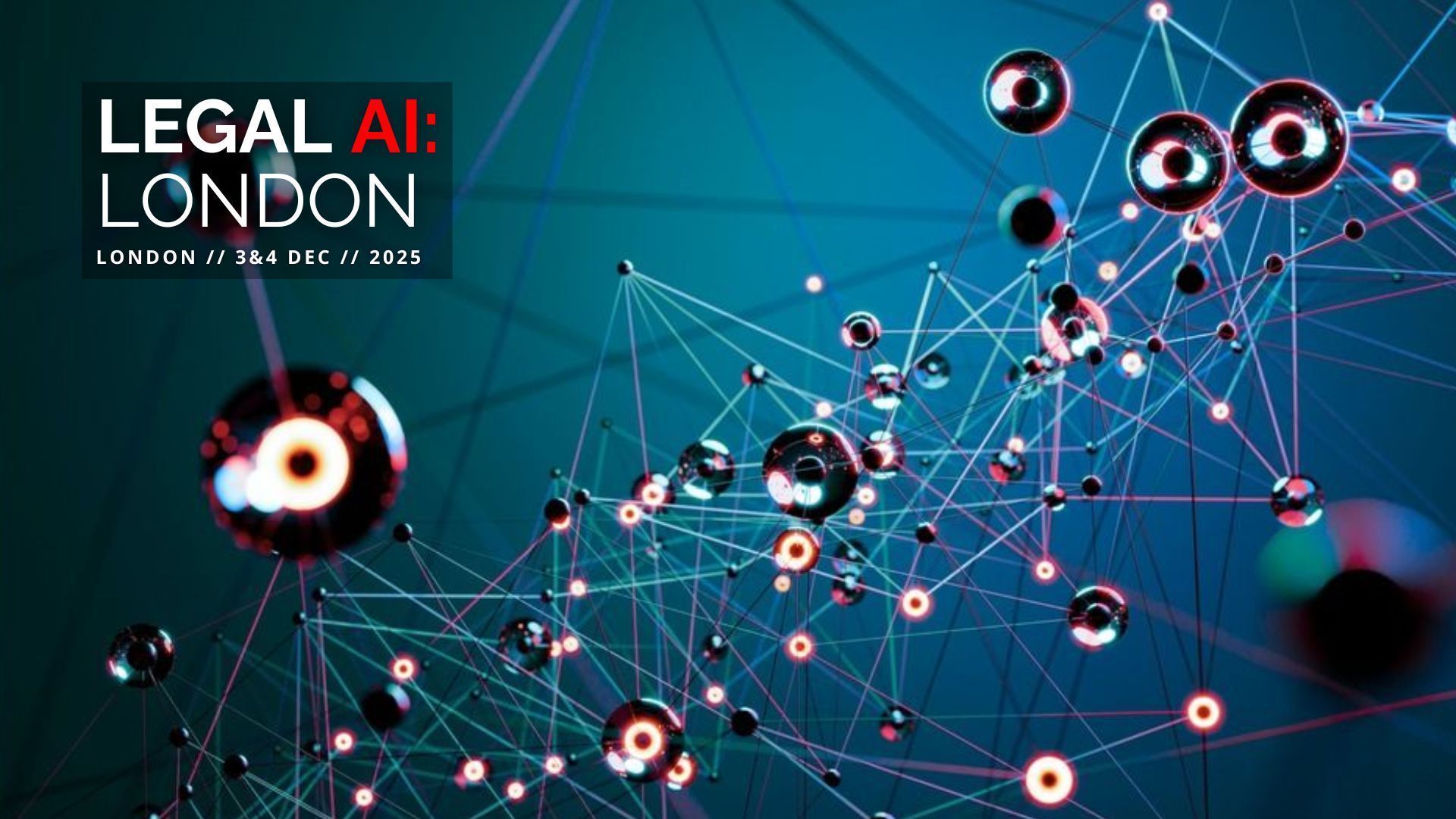Charting Legal AI's Future: Key Takeaways from the Legal AI Pathfinder's Assembly NYC
The Legal AI Pathfinder’s Assembly – New York took place last week at the offices of Simpson Thacher on December 7th.
Developed as a think tank and peer-to-peer exchange for law firms charting their respective AI roadmaps, the program took a deep dive into the evolving role and impacts of generative AI within law firms – examining how several firms are leaning in, proactively experimenting, and invested in the strategic integration of AI into both the practice and business of law.
Conference chair, Damien Riehl, VP, Solutions Champion at vLex, welcomed everyone in attendance to the program, with a retrospective look at the major AI milestones and events that have taken place over the past year.
In the opening session titled, Making Sense of 2023: Trajectory and the Speed of Change, we heard from Daniel Katz (Chicago Kent College of Law, 273 Ventures), as he was essentially interviewed by co-hosts at The Geek in Review Podcast, Greg Lambert (Jackson Walker LLP) and Marlene Gebauer (Mayer Brown).
The discussion was largely anchored by two independent arcs of maturity – focusing on the underlying models themselves, as well as additional engineering enhancements. Professor Katz guided attendees across the arc from out-of-the-box, “zero-shot” capabilities along a progression from basic functionalities to more advanced integrated applications, incorporating more complex elements.
Dan equated this progression and journey to a slow and systemic climb – as opposed to summiting Mount Everest overnight (which a lot of the hype would have us believe). Clearly, a lot of fine-tuning has yet to take place moving forward, as these models require an exceptional “information diet” – along with a need to balance ethical walls and information security.
Next, we heard from Joe Green who shared Gunderson Dettmers story of building its own internal generative AI chat application, “ChatGD” – including why they decided to build it, how it’s used, and what the firm has learned in the process.
Joe emphasized the importance of setting realistic expectations and goals for AI adoption in law firms, focusing on flexibility and value rather than perfect replacement of human attorneys – perhaps minimizing the type of work that clients don't particularly value while reframing (in the client’s mind) what it is that they are happy to pay law firms for.
Following Joe, we heard from the IncuBaker team at BakerHostetler – featuring Katherine Lowry, Leigh Zeiser, and Elaine Dick. This comprehensive, deep dive into Baker Hostetler's AI journey offered valuable insights into the strategic and disciplined approach necessary for successful AI integration in law firms – emphasizing the importance of building a strong data foundation and not rushing into AI without proper assessment and evaluation.
The IncuBaker team covered an incredible amount of ground within their allotted time, sharing a number of guiding principles that help to assess use case feasibility and business value and more broadly navigate the complexities of AI adoption.
Troutman Peppers Jason Lichter and Andrew P. Medeiros were up next as they delved into the firm's AI Task Force and its development and strategic implementation—emphasizing the importance of identifying AI aptitude across practice areas, forming a cohesive strategy for AI integration, and ensuring widespread expertise within the firm.
The Troutman team also shared a live demo of “Athena,” the firm’s ChatGPT application developed to help attorneys and business professionals safely and effectively use generative AI to improve workflows and enhance overall user and client experiences. Andrew and Jason fielded a number of audience questions and led a very lively discussion.
After lunch, we heard from the team at Gibson Dunn , as Meredith Williams-Range, Lawrence Baxter, and Jeff Saper led the audience through a discussion centered on the critical role of data in driving AI transformation – with a particular focus on governance, security, and privacy.
This session highlighted the interconnectedness of data collection, governance, and analytics as foundational pillars for effective AI implementation – emphasizing the importance of cross-functional teams, the collective ownership of data, and the role of stewardship in managing and maintaining data.
“Unintentional data breaches can be just as dangerous as intentional ones.”
Up next, we had Philip Bryce, Amol Bargaje, and Marlene Gebauer from Mayer Brown leading attendees through a discussion centered around the firm’s journey through this year’s wild AI hype cycle.
The team at Mayer Brown highlighted their journey from the initial exploration of emerging GenAI tools and tech and the need for adaptability and strategic planning – to addressing client inquiries about AI’s impact.
Mayer Brown's approach to AI adoption is focused on creating a balance between innovation and responsible use, emphasizing the importance of setting expectations and ensuring that AI tools are evaluated for their feasibility, business value, and ethical implications.
This was a fantastic conclusion to the program’s “firm spotlight sessions” leading us to the closing Futurecasting panel, featuring Centari CEO Kevin Walker, James Ding, Co-founder & CEO at DraftWise, Emily Colbert, Senior Vice President, Product Management at Thomson Reuters, and moderated by the day’s conference chair, Damien Riehl.
This closing discussion aspired to break down AI’s capability into discrete terms, illuminating opportunities that exist between pain points and what the technology can do, where these applications fit within the value chain, and more broadly what these visions of the future mean for law firms today in terms of tech strategy, data readiness, business models, talent and training.
Each of our esteemed panelists shared their own foresight and projections, sparking some very compelling dialogue with attendees. These projections were largely limited to the next 12-to-24 months, which seemed a reasonable time horizon given all that has transpired in the past year.
- Will there be a shift from experimentation with GenAI to practical use within the next year?
- Should we expect AI to become a regular part of lawyers' workflows, with less reliance on manual review and more focus on using AI for edge and efficiency?
Exercising human judgment is likely always going to be a part of the equation. While AI can and will expedite certain workflow components, most in attendance last week felt that a combination of humans and relevant data is still going to produce the best results for your clients.
At the same time, clients are expecting law firms to keep up with the pace of change and evolve and improve in step with emerging tech capabilities. And therein lies the challenge.
Strategic and practical innovation increasingly demands refreshed skillsets, proper training, and education enabling an ability to work with and alongside emerging tools and tech to a degree where we are not merely adapting to change, but actively driving it—taking a hands-on, developmental approach to shaping the tools that will no doubt reshape our profession.
Last week’s conference proved to be a fascinating and comprehensive exploration of an emerging blueprint for data-driven transformation that balances practical and realistic near-term expectations with longer-term aspirational goals—emphasizing the importance of education, experimentation, innovation, collaboration, and data literacy.
A huge thanks to Oz Benamram, Stephanie Cano , and Simpson Thacher & Bartlett LLP for hosting and to event partners, DraftWise, Centari, Thomson Reuters, and vLex for helping to bring this event to life. And of course, a tremendous amount of gratitude to all of our speakers and spotlight firms!
We hope you will consider joining us as we continue the discussion next year at the Legal AI Pathfinder’s Assembly—Chicago this March 6-7.
More details can be found here: Legal AI Pathfinder’s Assembly (insidepractice.com)











